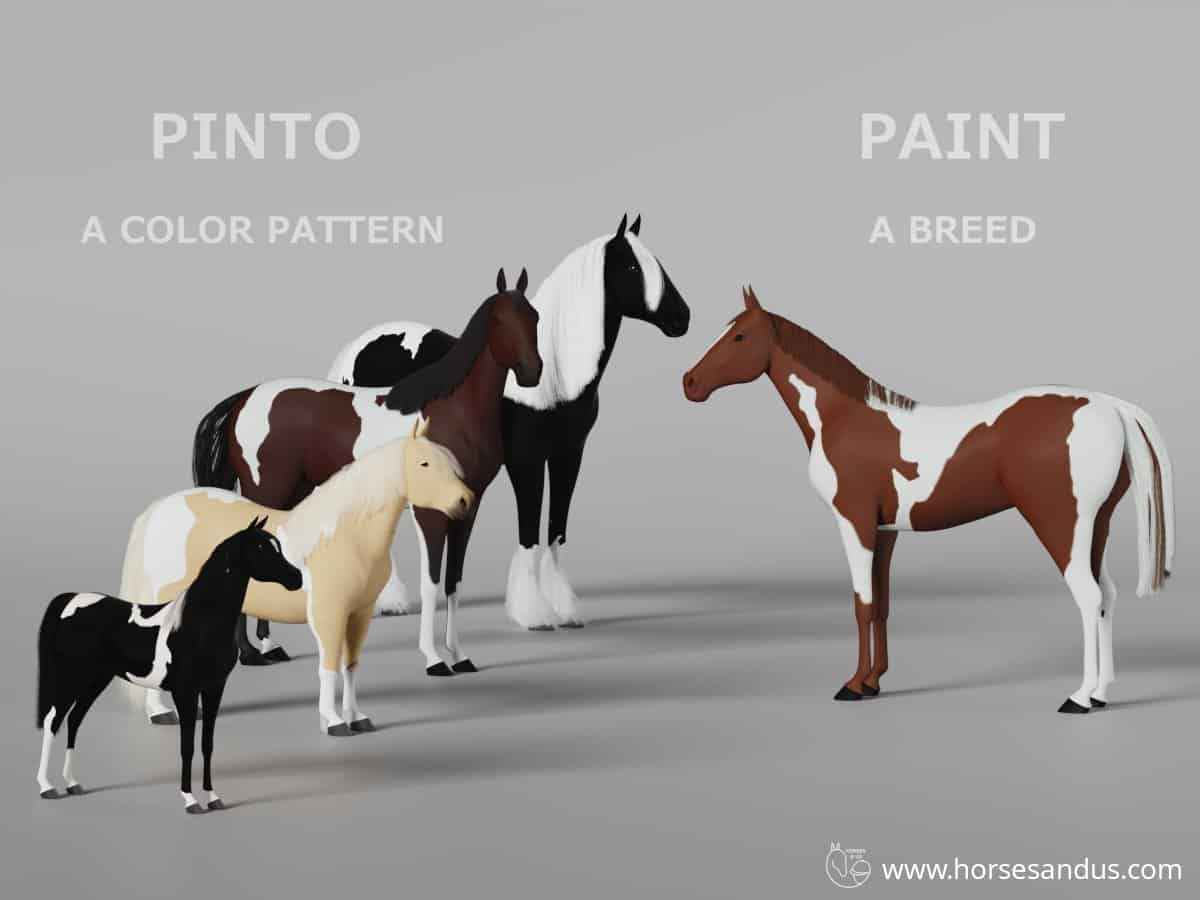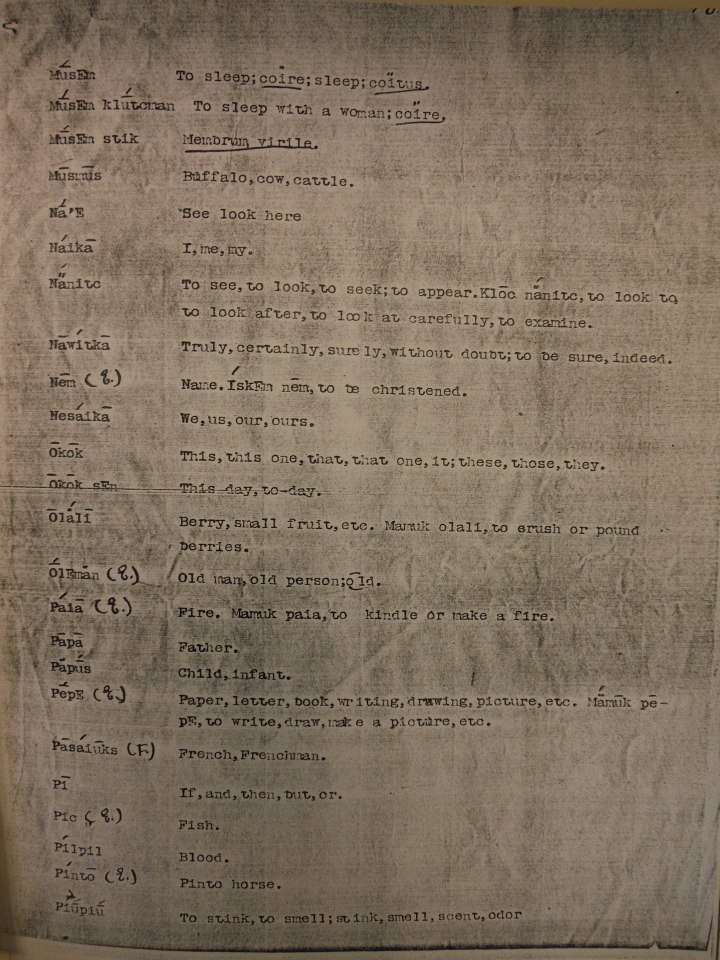AF Chamberlain’s field notes of Chinuk Wawa from SE British Columbia (Part 10: sex, christening, Indigenous berry processing, pinto horses, smells)
New discoveries again! And confirmation of stuff we’ve found elsewhere in the Northern Dialect of Chinook Jargon!

Image credit: Horses and Us
Chamberlain’s “c” is the “sh” sound, and his “tc” is the “ch” sound. His “ä” is the “a” in “cat”, a frequent sound in the Northern Dialect.
Stuff in orange here seems like new discoveries to me — different from what we’ve found in other places’ use of Chinuk Wawa.
(A link to all installments in this mini-series)

[DDR note: #12 nat lang]
(A link to all installments in this mini-series!)
- mū́sEm – ‘to sleep; coïre; sleep; coïtus‘
(That is, ‘to have sex; sexual intercourse’. Like other scholars of his time, Chamberlain switches to Latin when he’s uncomfortable with a subject.) - mū́sEm klū́tcman – ‘to sleep with a woman; coïre‘
(Literally ‘to sleep a woman’; this really demonstrates how strongly músum is associated with sex in the Northern Dialect, where we tend to find slíp for the meaning ‘sleep’.
Compare, from a previous page, Chamberlain’s mÉctōn ‘coïre; coïtus’ from an Indigenous language.) - mū́sEm stik – ‘membrum virile‘
(I.e. ‘penis’; literally, a ‘sex stick’. This phrase has been reported from the Bella Coola area of BC as well, if memory serves.) - mūsmūs – ‘buffalo, cow, cattle’
- nā́’E – ‘see(,) look here’
(This is a rare survival of this older Chinook Jargon interjection in the north.) - náikā – ‘I,me,my’
- nä́nitc – ‘to see, to look, to seek; to appear’
- klōc nä́nitc – ‘to look to, to look after, to look at carefully, to examine’
(What Chamberlain means by the first 2 senses is ‘to take care of’. The most common meaning of this phrase, though, is not mentioned by him: ‘be careful’.)
- klōc nä́nitc – ‘to look to, to look after, to look at carefully, to examine’
- nāwítkā – ‘truly, certainly, surely, without doubt; to be sure’
- nēm (E[nglish]) – ‘name’
- ískEm nēm – ‘to be christened’
(Literally to ‘take/pick a (baptismal) name’.)
- ískEm nēm – ‘to be christened’
- nesáikā – ‘we, us, our, ours’
- ōkōk – ‘this, this one, that, that one, it; these, those, they’
- ōkōk sEn – ‘this day, to-day’
- ōlä́lī – ‘berry, small fruit, etc.’
- mamuk olali – ‘to crush or pound berries’
(That is, the Indigenous method of preparing berries for preservation by drying. A new discovery for us, but it exactly fits Chinook Jargon’s pattern where mamuk- [‘make’] + a natural resource = the harvesting or processing of that item.)
- mamuk olali – ‘to crush or pound berries’
- ṓlEmän (E.) – ‘old man, old person; old’
- páia (E.) – ‘fire’
- mamuk paia – ‘to kindle or make a fire’
- pāpā – ‘father’
- päpū́s – ‘child, infant’
- pēpE (E.) – ‘paper, letter, book, writing, drawing, picture, etc.’
- mä́mūk pēpE – ‘to write, draw, make a picture, etc.’
- pāsáiūks (F.) – ‘French, Frenchman’
- pī – ‘if, and, then, but, or’
- pic (E.) – ‘fish’
- pílpil – ‘blood’
- píntō (E.) – ‘pinto horse’
(Surely used elsewhere in Chinook Jargon too, but like other expressions perceived as English words, this was left out of the dictionaries.) - piū́piū – ‘to stink, to smell; stink, smell, scent, odor’
(This is interesting to find. Chamberlain seems not to have documented the common word hə́m ‘to smell, to smell something; odor’. We’ve known piupiu in Chinook Jargon only as ‘skunk’, although I now suspect that that could’ve been just a misprint for pinpin, a Chinookan-sourced word for ‘skunk’ that we know from other CJ sources. Which means that Chamberlain’s piupiu is a new discovery — perhaps sourced from English “phew“, or just possibly from Métis/Canadian French “pue“.)

Pingback: Ikta Dale McCreery yaka t’ɬap (Part 10: seriously, don’t say “musum” in Northern Dialect unless you mean busy-ness!) | Chinook Jargon